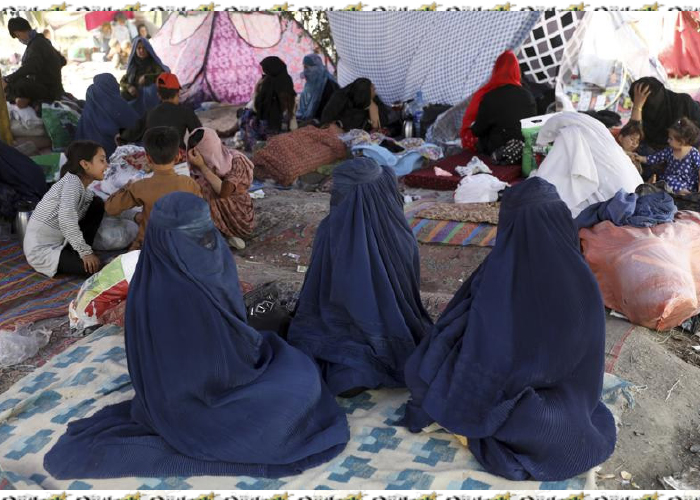KABUL, Afghanistan — The Taliban seized two more provinces on Saturday and approached the outskirts of Afghanistan’s capital while also launching a multi-pronged assault on a major northern city defended by former warlords, Afghan officials said.
The insurgents have captured much of northern, western and southern Afghanistan in a breakneck offensive less than three weeks before the United States is set to withdraw its last troops, raising fears of a full militant takeover or another Afghan civil war.
The Taliban captured all of Logar province, just south of the capital, Kabul, and detained local officials, said Hoda Ahmadi, a lawmaker from the province. She said the Taliban have reached the Char Asyab district, just 11 kilometers (7 miles) south of Kabul.
The insurgents also captured the capital of Paktika, bordering Pakistan, according to Khalid Asad, a lawmaker from the province. He said fighting broke out in Sharana early Saturday but ended after local elders intervened to negotiate a pullout. He said the governor and other officials surrendered and were on their way to Kabul.
The Taliban meanwhile attacked the northern city of Mazar-e-Sharif from several directions, setting off heavy fighting on its outskirts, according to Munir Ahmad Farhad, a spokesman for the provincial governor. There was no immediate word on casualties.
The Taliban have made major advances in recent days, including capturing Herat and Kandahar, the country’s second- and third-largest cities. They now control 19 of Afghanistan’s 34 provinces, leaving the Western-backed government in control of a smattering of provinces in the center and east, as well as Kabul and Mazar-e-Sharif.
Afghan President Ashraf Ghani delivered a televised speech on Saturday, his first public appearance since the recent Taliban gains, in which he vowed not to give up the “achievements” of the 20 years since the U.S. toppled the Taliban following the 9/11 attacks.
The U.S. has continued holding peace talks between the government and the Taliban in Qatar this week, and the international community has warned that a Taliban government brought about by force will not be accepted. But the insurgents would appear to have little interest in making concessions as they rack up victories on the battlefield.
“We have started consultations, inside the government with elders and political leaders, representatives of different levels of the community as well as our international allies,” Ghani said. “Soon the results will be shared with you,” he added, without elaborating further.
The president had flown to Mazar-e-Sharif on Wednesday to rally the city’s defenses, meeting with several militia commanders, including Abdul Rashid Dostum and Ata Mohammad Noor, who command thousands of fighters.
They remain allied with the government, but during previous rounds of fighting in Afghanistan, warlords have been known to switch sides for their own survival. Ismail Khan, a powerful former warlord who had tried to defend Herat, was captured by the Taliban when the insurgents seized the western city after two weeks of heavy fighting.
Residents of Mazar-e-Sharif expressed fear about the security breakdown.
“The situation is dangerous outside of the city and inside the city,” Mohibullah Khan said, adding that many residents are also struggling economically.
“The security situation in the city is getting worse,” said Kawa Basharat. “I want peace and stability. The fighting should be stopped.”
The withdrawal of foreign forces and the swift retreat of Afghanistan’s own troops — despite hundreds of billions of dollars in U.S. aid over the years — has raised fears the Taliban could return to power or the country could be shattered by factional fighting, as it was after the Soviet withdrawal in 1989.
The first Marines from a contingent of 3,000 arrived on Friday to help partially evacuate the U.S. Embassy. The rest are set to arrive by Sunday, and their deployment has raised questions about whether the administration will meet its Aug. 31 withdrawal deadline. (AP)
Home » Afghanistan » Taliban Approach Capital’s Outskirts, Attack Northern City
Taliban Approach Capital’s Outskirts, Attack Northern City

